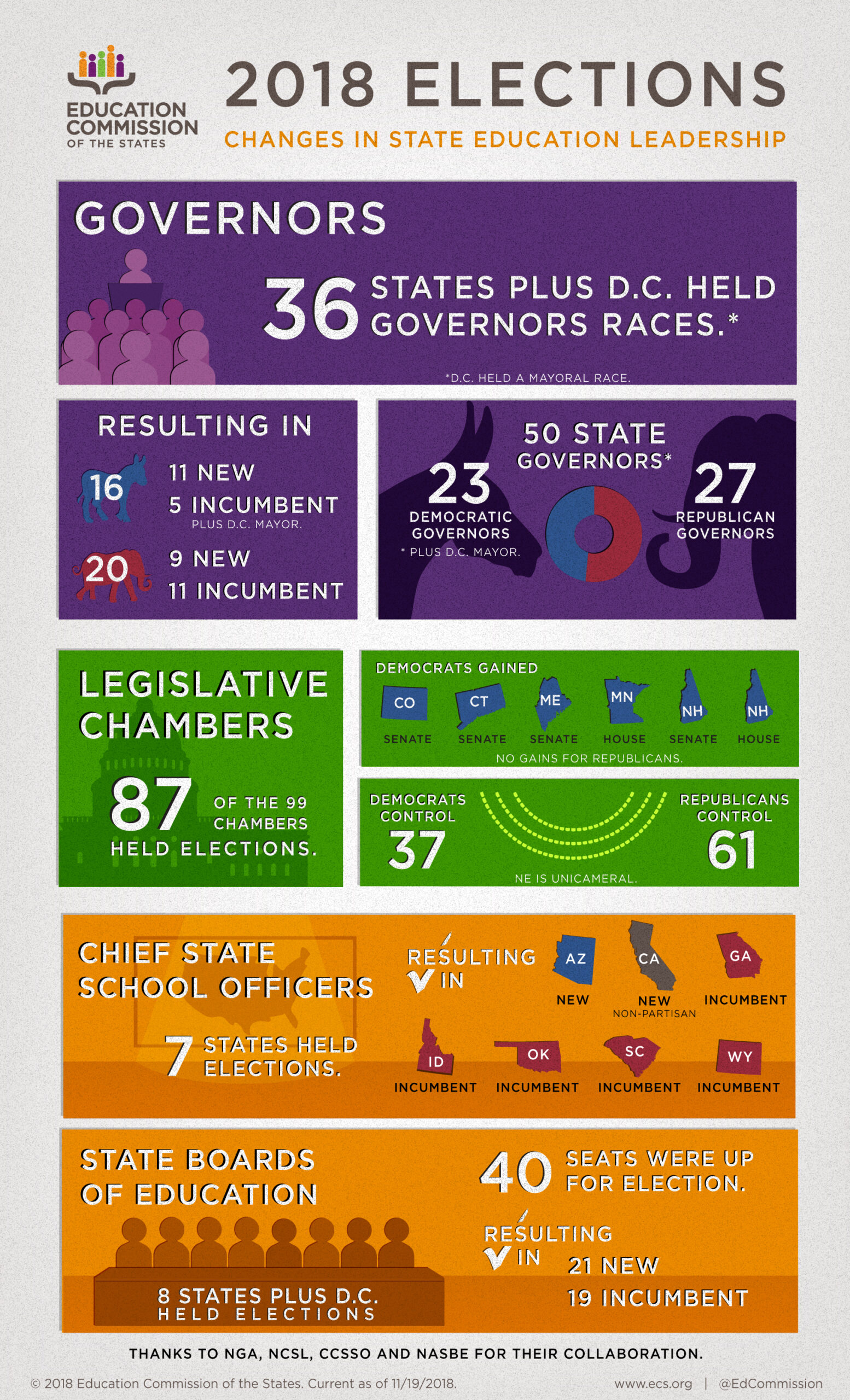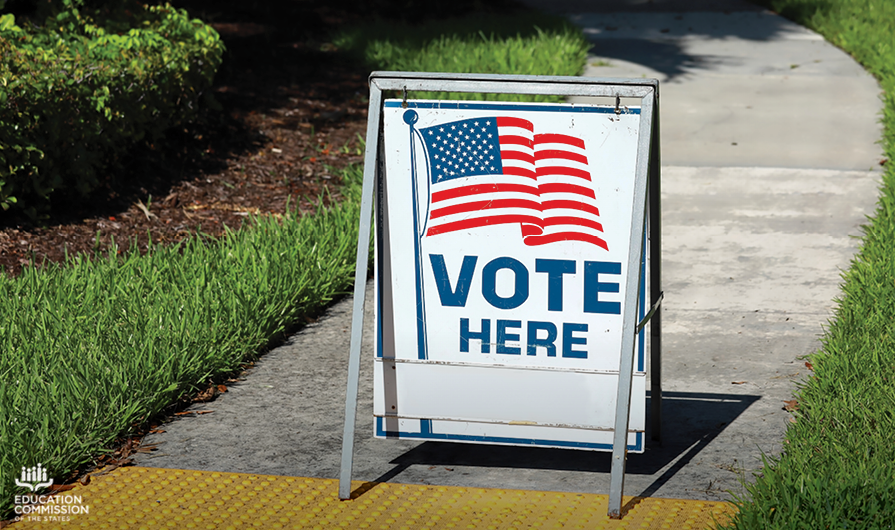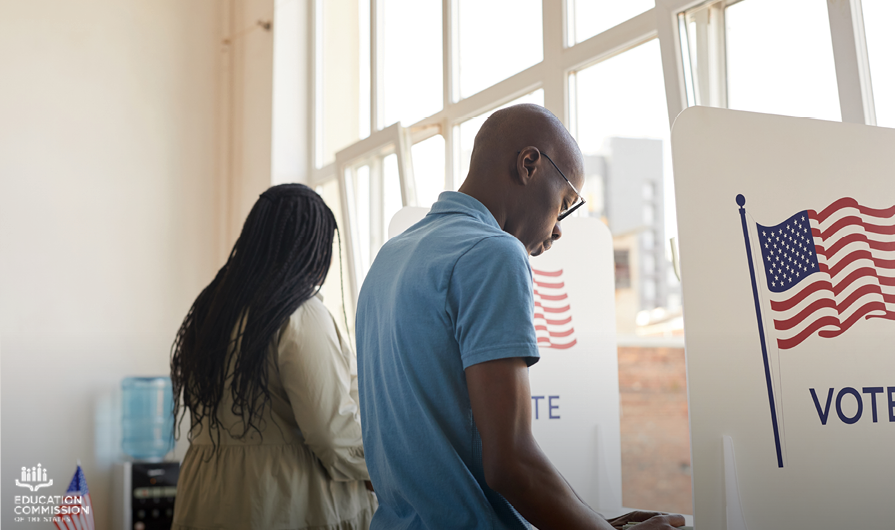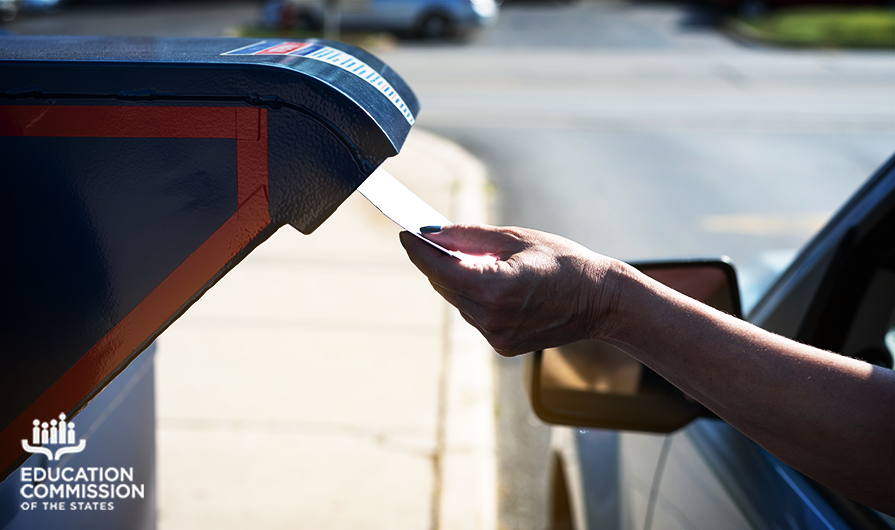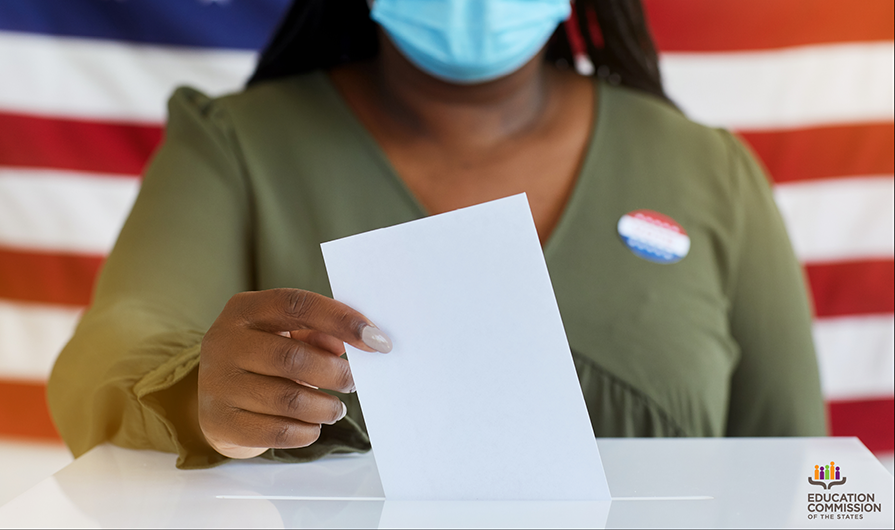This is one of two posts on 2018 elections results. See the other post, “2018 Elections: Changes in State Education Leadership".
In addition to selecting top leadership roles, voters in at least 17 states considered 23 measures related to education on their statewide ballots this cycle — 16 of which passed, according to National Conference of State Legislatures. Measures considered by voters this year included:
Statewide bond measures were passed in three states. Maine passed two bonds, which authorized $49 million for construction costs of the University of Maine system and $15 million for infrastructure items in Maine community colleges. Similarly, Rhode Island allocated $250 million for public school buildings and $70 million for higher education facilities. New Mexico passed three bond measures — which authorize $12.9 million for libraries; $6.13 million for public school buses; and $128.4 million for higher education, special schools and tribal school boards.
Popular referendums are initiatives regarding a piece of legislation recently passed in the state. Popular referendums of education issues were on the ballot in Arizona (Proposition 305) — which repealed a law to use public tax dollars for private-school tuition — and Massachusetts (Question 3) — which upheld a law prohibiting discrimination based on gender identity.
Several states considered measures to raise revenue for public schools. Montana approved the continuation of a property tax for funding to the Montana University System. Oklahoma also approved Question No. 801, a property tax for funding school district operations and construction projects. Georgia approved Amendment 5 to allow schools districts with most of their students in a county to call for a sales tax referendum in the county. Voters in Colorado and Hawaii both denied measures that would have increased revenue for public schools.
Three states identified taxes on gambling and marijuana as a source of revenue for public schools. Maryland increased the amount of revenue to public schools from gambling. Michigan legalized marijuana in the state and allocated revenue from the sales tax of recreational marijuana to school districts, among other things. In Missouri, voters passed measures regarding medical marijuana, but voted no on Proposition C — which would have added a 2 percent sales tax to medical marijuana to be used for childhood education, among other things.
Alabama and Florida made changes to the governance of public universities. Alabama’s Amendment #3 changed the membership and appointment requirements for the University of Alabama Board of Trustees. Florida’s Amendment No. 7 moved the structure of the state's college system into the state’s constitution and changed the university system's voting requirements for college fee increases.
In South Carolina, Amendment 1 failed, which would have made the state superintendent of education into an appointed position by the governor.
Other notable tidbits from this year’s midterms:
- Educators’ impact. Among the high number of current and former teachers and other education professionals campaigning for elected positions this election cycle was Jahana Hayes, the 2016 National Teacher of the Year. She won her race to represent Connecticut’s 5th congressional district.
- More women in office. Janet Mills was elected as the first female governor of Maine, and Kristi Noem was elected as the first female governor of South Dakota. Michigan elected women to serve in every statewide office, including governor, U.S. senator, attorney general and secretary of state. NCSL projected over 2,000 women were elected in state legislatures across the country, an increase of more than 190 from last legislative session. A record number of women won seats in the U.S. House of Representatives as well.
- Voter turnout. At least 33 million people participated in early voting across the country, up from an estimated 22 million in the 2014 midterm election, according to CNN. Early reports show an estimated 113 million people participated in the election — or a 49 percent participation rate among eligible voters. This would be the first time over 100 million votes were cast in a midterm election in our nation’s history.


